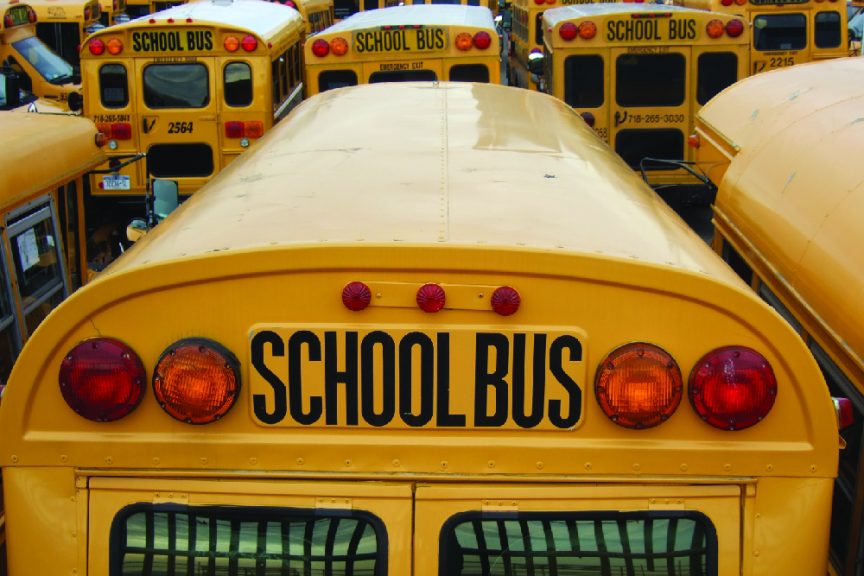Iowa’s Greene County is struggling with rising costs of transportation for school children. Could an effective soil stabilization program help reduce those expenses?
You may have taken the bus to school as a kid. You probably didn’t take two.
Thanks to a state law banning bus rides longer than one hour, Iowa Public Radio reports that many students in Iowa’s Greene County are forced to do precisely that. Since the rural county’s schools are scattered across several towns, schoolchildren need to transfer at least once to another bus to ensure that they aren’t on any single bus for more than an hour.
It’s a frustrating logistical knot that’s discouraging parents from using the buses — and driving up transportation costs for a district in sore need of funds.
A Heavy Burden
Given these circumstances, it’s not shocking that the cost of busing in Greene County is a significant outlier in the Hawkeye State. Data from the Iowa Department of Education reveals that the median transportation cost per pupil in the state is just under $380. By contrast, Greene County is spending a whopping $586.41 per student.
The spiking costs of transportation are a major financial burden for the county’s sole school district. The state of Iowa provides a certain amount of funding per student, and that’s supposed to help cover transportation. But when costs become as onerous as they are in Greene County, they eat into funding for other educational needs, like textbooks and special education programs.
In fact, if Greene County could lower its cost of transportation per pupil to the state median, it stands to save over $268,000 a year. Offering something of a model, Iowa’s largest district — the Des Moines Independent School District — spent about $187 per student last year, resulting in a surplus of $6 million.
Bumps in the Road
Greene County’s transportation budget is partially inflated by the sheer size of its school district. Since its several schools are located across 388 square miles, a typical journey for a bus in Greene County is longer (and thus more expensive) than it is in other counties. In the near-term, the county plans to address this problem by relocating all K-12 classes to Jefferson, the county seat.
Greene County Transportation Director Wayne Hougham also points to gravel roads as a contributor to rising costs. Gravel roads are a common sight in Iowa, accounting for 60% of the state’s public roads, according to the Des Moines Register. Unfortunately, Green County’s school buses aren’t designed to handle such long trips on these surfaces.
“The ruts…and the mud can be like a washboard, and they start bouncing…and that’s hard on a bus,” Hougham told Iowa Public Radio.
Strengthening Roads to Reduce Costs
With much needed room in the budget at stake, it’s clear that Greene County needs a longstanding solution to its transportation woes. Treating its unpaved roads with a reliable soil stabilization product could be the solution they’re looking for.
For more than four decades, Midwest Industrial Supply, Inc. has worked with counties, villages, and townships across America to treat and reinforce their unpaved roads with proven road stabilization solutions.
Backed by our patented GreenPave® natural paving technology, our products mix with the road’s native soils to engineer a durable surface that resists erosion, moisture, and pressure. In the process, we’ve helped communities save hundreds of thousands of dollars in ongoing maintenance costs, allowing them to invest more in their schools, parks, and other public services.
Rural communities like Greene County don’t need to spend so heavily on simply getting their kids to school. To save money in the long run, look to Midwest for your unpaved road maintenance solutions.


